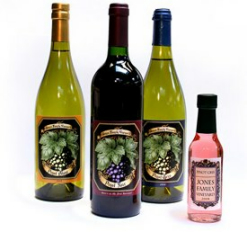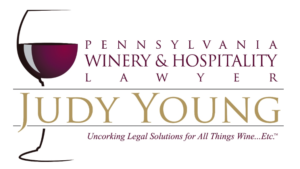Wine Labels and The Law
 Was that you I saw doing a wine label drive-by?
Was that you I saw doing a wine label drive-by?
I’m often amazed at the events I’ve attended wherein wine was served, the guests complimented the wine, but rarely took the next step to view the label of the wine they were enjoying. In other words, they were socially doing what I call a “wine label drive-by”.
Wine labels typically catch my attention. I have even been known to use a “wine label saver” now and then, to collect wine labels for wines I might desire to re-visit again. I capture the label and my impressions in a wine label tasting journal with notes on whether the wine was a gift, who shared it, what foods were paired and whether the wine was worthy to be served, gifted or purchase down the road.
Wine labels can be both interesting and insightful. U.S.and State regulatory requirements require the label notify the buyer what he or she is purchasing. This is helpful in that the wine label reveals to the buyer, the wine’s country or region of origin, producer, shipper, what grapes were used and the year of harvest. The wine label may also include other non-mandatory, yet fun elements putting the buyer on notice that a hint of peach or pear may be part of the tasting experience. The wine label might alert the user that an aromatic experience of oakiness or soil might reveal itself in the flavors. Perhaps the wine may surprisingly suggest what foods are best paired with the wine.
Alternatively, other wine labels may focus on the brand. If done well, a good brand can make for an incredibly great conversation piece at dinner. Some wine labels may display an artistic creation of a home grown graphic designer or artist on display. Others may simply convey a catchy phrase for which the purchaser cannot resist the opportunity to buy. Certainly, I’ve known a few folks that have been the life of the party, showing up to that very stiff affair at the boss’s party with a bottle of “Fat Bastard” in hand. Today’s millennials might be pleased to know that they can hit that twitter speed tasting party wearing their favorite Ed Hardy graphic tattoo apparel while tweeting on Christian Audigier’s 2008 Ed Hardy Rose!
On occasion, I’ve gone looking to gift a particular wine only to my surprise find the wine label had changed. The wine label was given a fresh new look and appearance leaving me to contemplate whether I could expect major changes in the wine as well. In any case, the wine label is purposeful.
The label is regulated by law so you as the consumer will know what you’re buying. The winemaker on the other hand has gone through great lengths to catch your attention to buy, perhaps even trademarking the label so as to carve out the winemaker’s brand as his own and give it full comprehensive protection registering it with the U.S. Patent and Trademark Office.
So, the next time you’re at that special social event, or dining experience commenting on how much you’re enjoying the wine—take a moment to stop, forego your “wine label drive-by” and instead, introduce yourself to the winemaker….and remember the winemaker’s work is done with you in mind.
